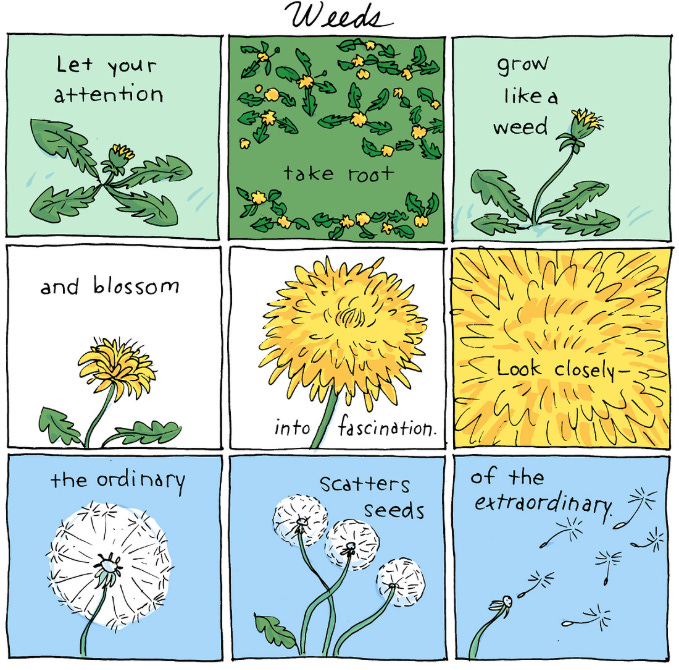This trip could take a leisurely 12 minutes — best savored with your favorite beverage.
It might take you somewhere unexpected. There may be dragons. Or just doubts.
But that's why we travel, isn't it?
I. What's Going On?
There are moments in history when everything seems to crackle with strange energy. Old systems fray, new technologies race ahead. Wars, whispers, and wonders crowd the headlines. The world feels like it's speeding up — or coming apart; or both.
This is one of those moments.
We live in a time of breathtaking tools and breaking trust. Of artificial intelligence and (un)real grievances; of populists and prophets; of dopamine and despair. We swipe, scroll, and speculate our way through a fog of societal polarization, economic uncertainty, geopolitical turmoil — and a gnawing question:
Is this chaos something new? Or have we seen this movie before?
We're told that history repeats itself. Or that it rhymes. But if history follows patterns, can we recognize them in real time?
Like many others, I've been trying to make sense of the noise. I find myself returning to books I first encountered as a graduate — offbeat classics like Gödel, Escher, Bach, and Zen and the Art of Motorcycle Maintenance. They didn't offer answers so much as reframe the questions.
For a long time, I didn't understand why these books stayed with me. Now I suspect it's because they tried to reconcile contradictions. Left brain and right brain; science and soul; structure and surprise.
I wonder if we have lost that integrative instinct.
Are we so caught up in velocity — technological, cultural, ideological — that we've forgotten to slow down and reflect?
And if so, is there a story that can help us remember?This essay is an attempt to make sense. A kind of map through the muddle. A journey inward and outward with the help of Joseph Campbell.
II. The Pattern and the Path
Campbell's most enduring insight was that across time and culture, the great myths of the world echo one another. Whether in the Ramayana or the Odyssey or Star Wars, there's a structure beneath the surface — that he called The Hero's Journey.
It begins with a call. A disruption. A refusal.
Then the journey begins: tests, trials, mentors, monsters.
The hero descends into the unknown, confronts a great crisis and — if transformed — returns with new wisdom.Campbell was writing about individuals. But what if this pattern also applies to societies? What if societies, like heroes, have arcs of departure, descent, and (sometimes) renewal?
We're living through a time of breakdown — of trust, of institutions, of shared stories. But breakdowns can be thresholds too.
It is plausible that our current crises — tech disruption, climate change, institutional failure — aren't endpoints but thresholds. They may well be the tests that precede transformation, the descent before potential renewal.
The hero never returns unchanged; neither will we. The question is whether we'll return with wisdom — or merely with scars.
Some thinkers — like investor-historian Ray Dalio — argue that our modern era (300 years old, from the Enlightenment and Industrial Revolution onward) is now deep in its descent. Debt crises, declining empires, social fragmentation are not signs of a glitch, but symptoms of a cycle.
The British historian Sir John Glubb found a similar rhythm. After studying thirteen empires, he argued that most follow 250-year arcs in predictable stages: an initial period of conquest followed by an explosion in commerce and accumulation of wealth. The new affluence leads to spending on education, arts, science. And yet, time and again — from Ancient Athens to the Arab Caliphate to China’s Song dynasty — an empire’s intellectual peak arrives just moments before its fall.
It's a pattern, not a prophecy — but the parallels are hard to ignore.
If so, we're not in the epilogue. We're in the ordeal.
The question is whether a transformation awaits — or just entropy.
III. When the Map Breaks

We have come to expect change — but not like this. The ground shifts beneath our feet. And the map, once so clear, begins to blur.
It's not just that things are changing. It's that they're breaking in ways we can't predict or explain.
This is the part of the Hero's Journey where the hero enters the cave and realizes the cave is inside them. Meaning becomes harder to find — and more essential to seek.
Robert Pirsig, in Zen and the Art of Motorcycle Maintenance, described his book as a kind of modern Chautauqua (as those traveling tent-shows moving across America were known) — a journey of inquiry meant to edify and entertain, to deepen old channels of thought rather than be swept along by the trivia of the day.
The modern world doesn't reward such searching. We are offered algorithms instead of answers; highlights instead of depth; influence without insight.
And yet, the need hasn't gone away. If anything, it's more urgent.
The old myths helped people find orientation in disorientation. Maybe that's our work now.IV. What We Traded

We optimized for speed, not wisdom. We scaled noise, not nuance.
Once, libraries were portals to the sacred. Now, we swipe 15-second videos. We have infinite access — and no attention span. We've got delivery apps for every appetite —except the hunger for truth.
We used to chase wonder. Now we chase Wi-Fi.
So yes, maybe it's time for fewer unicorns — and more horses, real ones. Maybe what we need isn't another productivity tool, but questions that slow us down.
V. A Different Compass
Where do we look for meaning and direction now?
Some turn to tech prophets or to influencers; others retreat to ideology or nostalgia. But a few — quietly — are turning inward.
As the noise intensifies, older wisdom traditions are being dusted off. From Buddhism to Advaita Vedanta, from Stoicism to Sufi poetry, there's a reawakening to the idea that the deepest insights start with introspection.
Our new machines aren't just tools — they're mirrors, showing us who we are and who we might become.
AI won't just augment tasks; it will force existential questions: what makes human creativity unique? what knowledge matters when all facts are just a query away?These technologies aren't simply new solutions to old problems — they're provocations. They raise questions about consciousness, truth, work and connection. And what we must value beyond efficiency.
The societal ordeal we face isn't just economic or political — it's also ontological. Who are we when machines can do what we once thought was uniquely human?
This is where our journey meets Campbell's threshold: not by fighting the machine future, nor by surrendering to technological determinism, but by using this moment to redefine what matters most.
A parable comes to mind …
… a condemned man begs for clemency from a king. The prisoner makes a rash promise: let me live and I will teach your horse to talk. The king agrees, giving him one year to complete the challenge. The elated inmate returns to his cell. His cellmate asks why he is so happy. A lot can happen in a year, he replies. The king might die. The horse might die. I might die. And maybe the horse will talk.
There's a strange optimism in absurdity. Maybe that's the kind we need now.
VI. The Crack Where the Light Gets In
If you stare long enough at the Magritte painting above, the illusion dissolves — and something deeper peers back.
The forest, the rider, the horse: none hidden, none fully seen. Perception is a matter of patience. Layered meaning needs time to emerge.
Like weeds in a field, attention takes root quietly. One day, it blossoms into fascination. The ordinary scatters the seeds of the extraordinary.
We may not know what act we're in, but we're still in the story. If the Hero's Journey has taught us anything, it's this: the threshold is never the end. So listen, question; let our roots find the older soil.
The myths remind us we've been here before.
The maps show us where we stand now.
And the machines? They won't just disrupt — they will demand that we evolve.
We're traveling through uncharted territory.
Paraphrasing Groucho Marx, these are my thoughts on how to keep going. If you don't like them ... well, every journey allows for course corrections.
We're venturing into the unknown, but that's where all great stories begin — and return.





This piece echoes so many of the themes and questions that have been simmering in my mind for a while. Very glad to have discovered you via a comment you left elsewhere on Substack ... the piece about wanting a squire instead of an AI assistant, I think. Brilliant that. And your piece is also full of excellent insights.
As I read, deep thoughts and questions begin to find me—often through life’s trials. There’s something in our nature that’s drawn to the mysterious, to energies that seem to resonate with us across unseen waves. We’ve turned to ancient texts for guidance, and now, through the lens of modern technology, we’re beginning to reinterpret their parables.
Yet, even with all this advancement, technology still falls short when it comes to the unknown—and how to confront it.
I believe. But belief alone isn’t enough. To truly understand, we must evolve—together - collectively on our subconscious side. Right now, even as our tools grow more powerful, we remain distant from the unknown, held back by fears that persist beneath the surface—fears fortified by our addiction to comfort.
Perhaps the path forward lies not in avoiding discomfort, but in embracing it. That may be the journey that frees us.